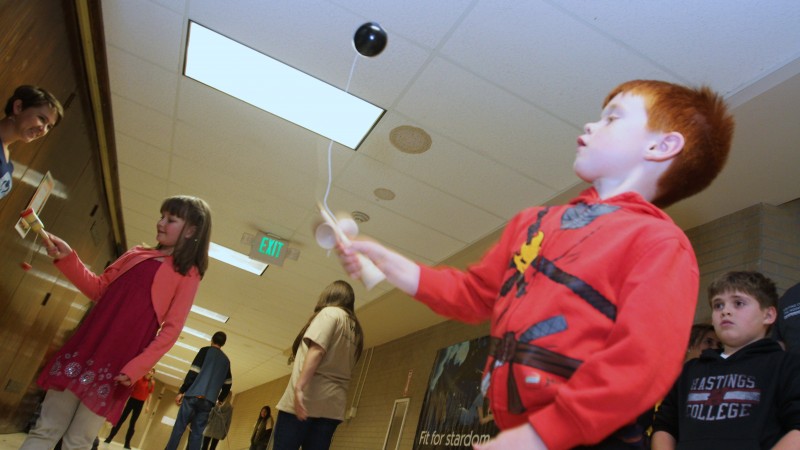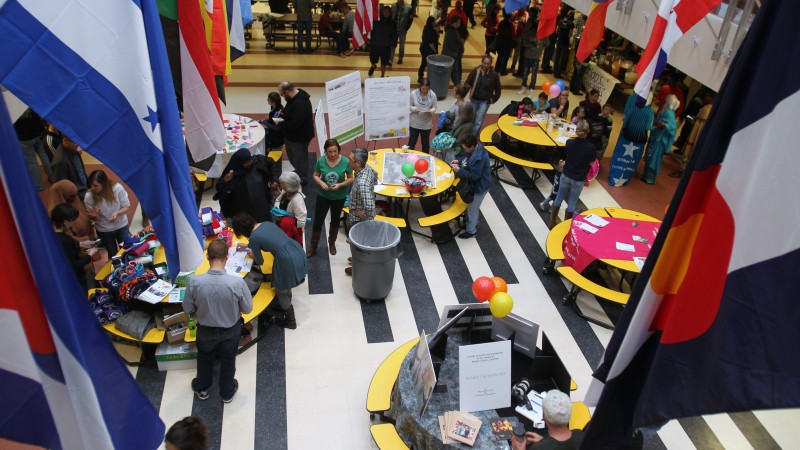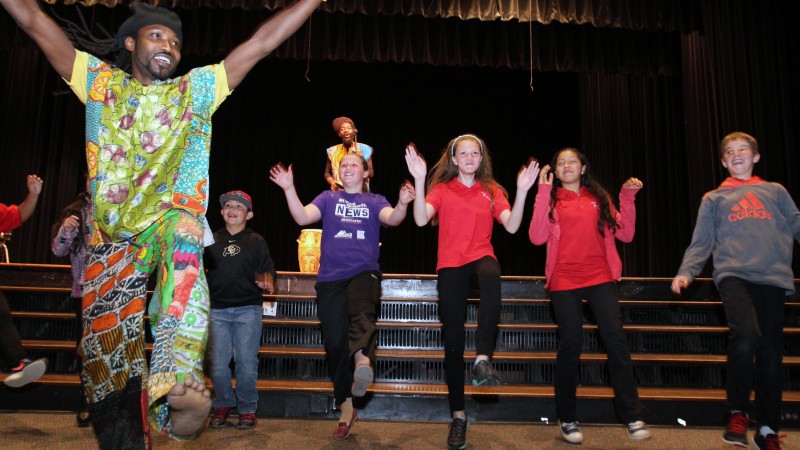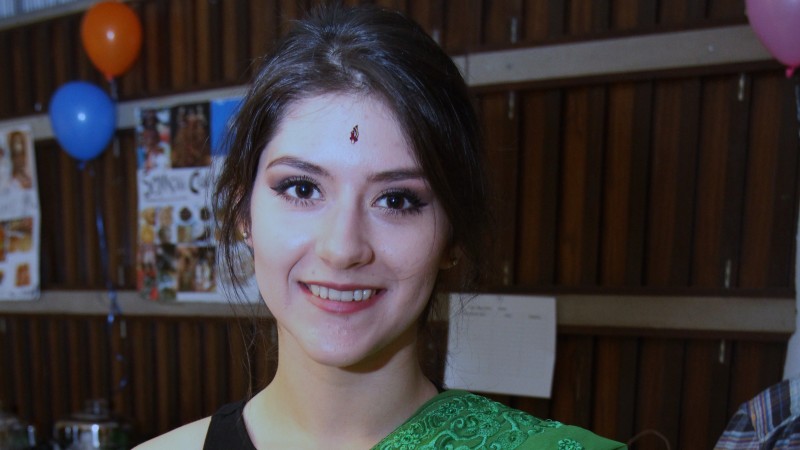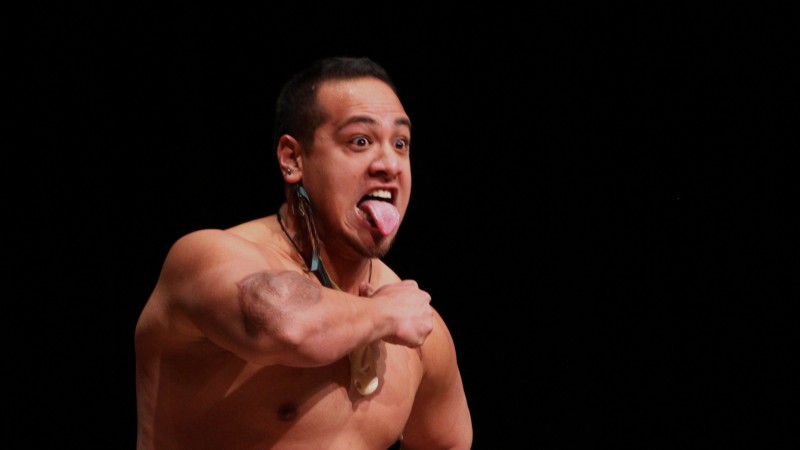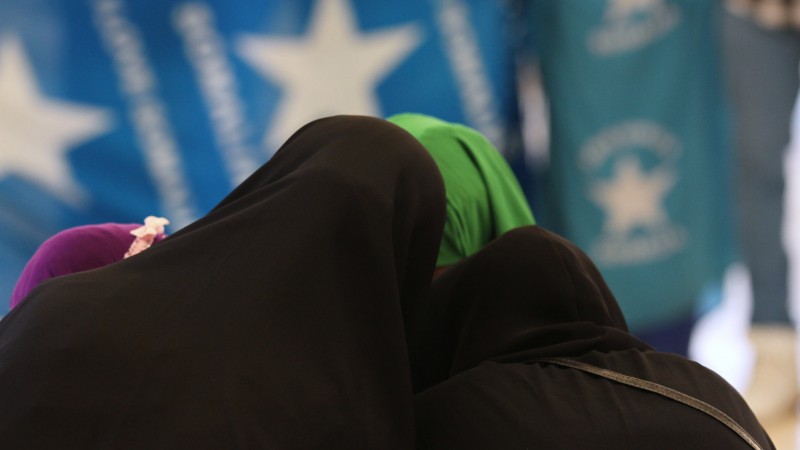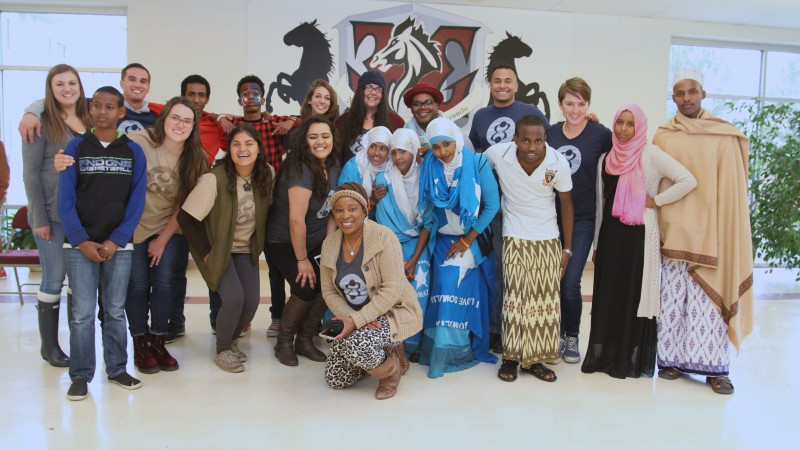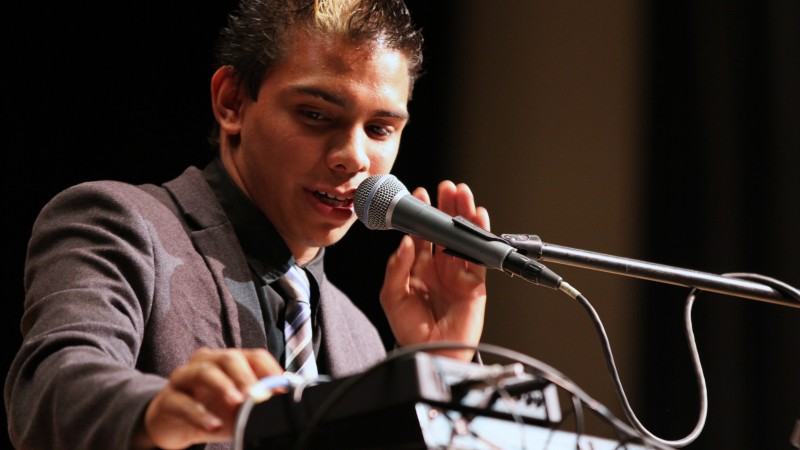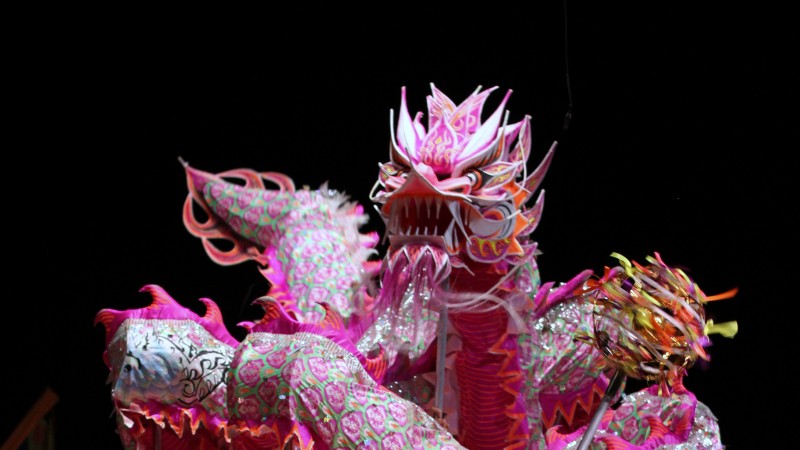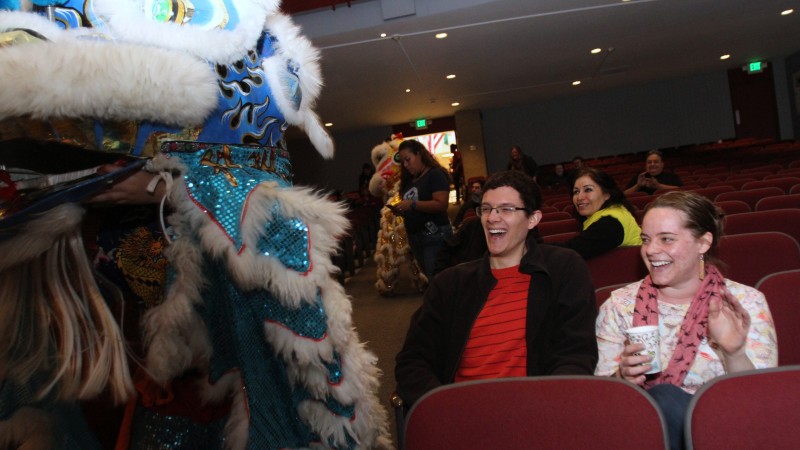As seen in CSU SOURCE.
About 35 students from Fort Morgan High School visited CSU on April 6 in a growing partnership that a faculty member and his students in the Department of Ethnic Studies have formed with that community.
The visit was the next logical step in an ongoing relationship between CSU and the town on Colorado’s Eastern Plains. The high school — and the town at large — is a multicultural community consisting primarily of Hispanics, Caucasians and East Africans.
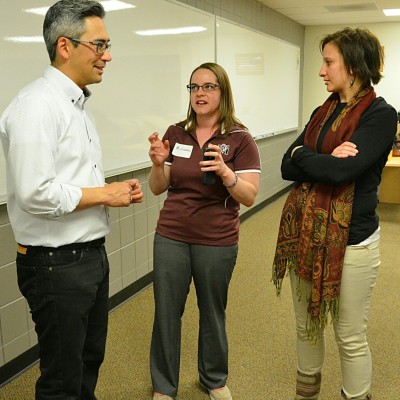
The latter, some of whom have been granted refugee status and work at the local Cargill meat-processing plant, were the target of bias-motivated incidents in early 2014. Town, school and Cargill officials have proactively addressed the situation over the past couple of years, aided in part by Associate Professor Eric Ishiwata and his students, who have helped host music festivals and community forums to support educational and community-building efforts. One of their most recent outreach efforts involved running a workshop on communication, bullying and interpersonal relations at the high school in December.
The high schoolers
Most of the Fort Morgan students who visited the CSU campus April 6 are recent immigrants or refugees enrolled in Taylor Jordan’s English as a Second Language class. They received T-shirts and gift bags, visited with Department of Ethnic Studies head Irene Vernon, toured campus and had a meeting with College of Liberal Arts Dean Ann Gill. They also sat in on Ishiwata’s “Race Formations in the United States” class, spoke with ethnic studies majors from similar backgrounds and enjoyed lunch at the Ram’s Horn dining hall.
“When I asked students what their favorite part of the visit was, the most popular answer was the all-you-can-eat buffet,” Jordan said. “Most of my students haven’t been to a buffet before. So it took them a while to understand that yes, you can take whatever you want and however much you want! One student even said he would take girls there on dates.”
In addition, the students attended an informational session presented by first-generation student Joselyn Loya of the Access Center, who told the high schoolers about the CSU application process, tuition, financial aid and campus support for first-gen students.
“This trip to CSU was very important for my students from Fort Morgan High School,” Jordan said. “These students are from all over the world, countries in East Africa such as Somalia, Ethiopia, Congo and Tanzania. Others are from countries like Mexico, El Salvador, Guatemala and Honduras. The students felt welcomed, accepted and, most importantly, valued.”
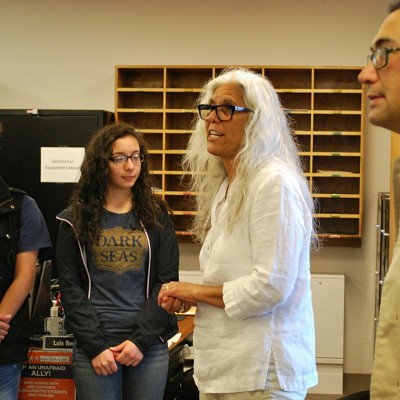
A mosque visit
Some of the Fort Morgan students also visited the Fort Collins Islamic Center.
“In Fort Morgan, there is no mosque,” she added. “There are only small rooms behind restaurants for the Muslim people to pray in. Watching the students so excited to see an actual building devoted to their religion was an amazing experience. This building conveys the message of, ‘Yes, we have Muslims here, and we are proud.’”
The Fort Morgan students agreed that the visit to CSU and Fort Collins was eye-opening.
“College visits like this can help you understand that you don’t have to just go to work at the same place your parents did — you can do something different for yourself,” said high schooler Jeferson Sofoifa. “College is about education, but also learning about life, becoming independent and discovering what you are passionate about. It’s about finding your passions — what makes you you.”
‘They belong here too’
“Most of the students don’t know much about college,” added fellow Fort Morgan student Brenda Vieyra. “They know it’s expensive and many may think it’s not really for them. With this visit they get to learn more and understand that they belong here too. It’s hard, but they can do it. Coming to visit a college like CSU is encouraging. It helps us to learn more about different things that we could do outside of Fort Morgan.”
“This trip actually helps Fort Morgan students a lot, to know that they are not alone in their situation,” Sofoifa added. “They see other Hispanic/ESL students who are here already, who were able to come to CSU and succeed in college, and that is inspiring. Many students from Fort Morgan might not think that CSU is really for them, but with this visit they can see that there are others like them already here.”
Jordan said the visit seemed to be mutually beneficial.
“The CSU students had the opportunity to be leaders and facilitate meaningful conversation, while my students were able to sit face to face with college students and realize that college is a completely realistic expectation for them,” she explained.
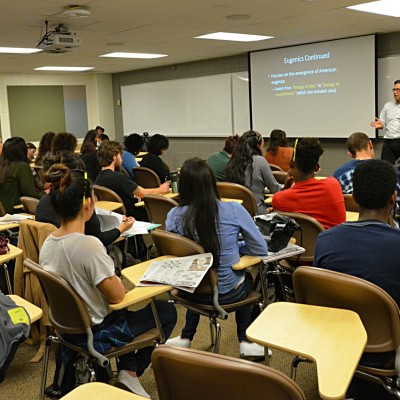
Hosting the event
Cody Chang, a CSU junior majoring in communication studies with a minor in ethnic studies, helped organize the visit with CSU junior and ethnic studies major Omar Sanchez. Chang said that as a first-generation Asian-American student it was fulfilling to help kids who are in the same position he was in.
“It was really rewarding to help people who come from a background like mine,” he said. “It would have been very helpful to me to have had that experience. Sometimes it was difficult to be around people who didn’t look like me.”
Chang added that he saw the high schoolers grow more comfortable as the day went on.
“Part of it was seeing people of color and people of their background,” he explained. “They really opened up toward the end when they saw the opportunities for themselves and how accessible it all was.”
“I asked my students to sign a thank you card to Professor Ishiwata the next day in class,” Jordan said. “On the card, one of my students wrote, ‘Thank you for your attention.’ To me, this simple statement pretty much sums up our experience. In classes, at school and in the community, these students tend to be looked over and undervalued. This trip meant so much to them because it shows them that somebody truly cares about them, is invested in their future, and is willing to give them the attention they have been lacking for so long.”
–Rachael Johnson contributed to this report.

